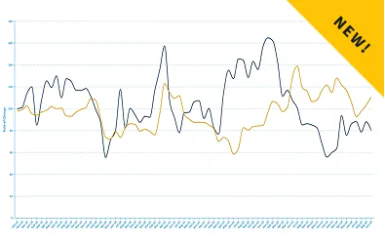Advocacy Day Opportunity For Members To Support Federal Affairs Priorities
Advocacy Day, the longstanding cornerstone event taking place on Wednesday, June 8, during RVs Moves America Week, is a unique opportunity for members of the RV Industry Association—and the wider RV industry—to make an impact on issues critical to the success of our industry.
Throughout the year, the RV Industry Association’s federal affairs team serves as the voice of the RV industry in the halls of Congress and the federal agencies advocating on behalf of the RV industry. In 2022, the key federal priorities cover campground modernization and expansion, outdoor recreation and access, trade, and tax issues.
Read on for an overview of policy priorities of the federal affairs team and don’t forget to register to participate in Advocacy Day during RVs Move America Week!
Campground Modernization and Expansion
Much has been accomplished in the efforts to modernize and expand the number of campgrounds on public lands. Between the passage of the Great American Outdoors Act and the recent creation of a National Campground Office within the National Park Service, the federal affairs team is focused on serving as a resource during the implementation of these historic initiatives, which will significantly improve the campground experience for a growing RV camping community.
Another package making its way through Congress is the Outdoor Recreation Act, a bill that recognizes the increased demand for RVs and takes crucial steps to address this demand by: modernizing U.S. Forest Service and other public campgrounds; providing gateway community assistance for outdoor recreation businesses, including private campgrounds; responsibly extending public lands shoulder seasons to increase RV camping opportunities; and bringing much-needed broadband/Wi-Fi to front country campgrounds to address safety issues and provide technologies that current and future park visitors require. The RV industry is a driving force behind this legislation and supportive of the legislation’s establishment of a pilot program for public-private partnership agreements to modernize campgrounds on federal lands.
Increasing Outdoor Access Through Improved EV Infrastructure
In recent comments to the Federal Highway Administration, the RV Industry Association expressed its strong support for the Administration’s goal of increasing access to the outdoors for all Americans, particularly through the establishment of grant and incentive programs for state and local governments, as well as the private sector, to build a national network of EV charging stations.
The goal of ensuring greater access to outdoor spaces, along with environmental concerns and adapting to future technologies, has led to the need for a robust EV charging infrastructure, especially in rural areas, national/state parks and forests, gateway communities, and private campgrounds. The development and funding for robust EV charging infrastructure aligns with the RV Industry Association’s efforts to unify the industry by working closely with the public and private campground industry to improve the consumer's camping and RVing experiences.
Renewal of the Generalized System of Preferences (GSP)
The lapse in the GSP program is costing the RV industry over $1 million per month and this issue has not moved significantly since the fourth quarter of 2021. Unfortunately, House Democrats remain separated from the rest of Congress over the terms of renewal. The RV Industry Association outreach has focused on pushing Ways and Means and Finance Committee champions to move on this quickly, and to push for a longer-term renewal of the program. On the latter point we are seeing some traction. Both the House and Senate have now passed legislation, the America COMPETES Act and the US Innovation and Competition Act (USICA), respectively, that would reauthorize GSP. The key differences between the two are the length of renewal and country criteria. The Senate bill contains a six-year retroactive renewal, while the House bill only renews the program for four years retroactively. Additionally, the House bill strengthens country criteria for beneficiary countries, specifically environmental, labor, and human rights requirements. Once the conference committee produces one version, the finalized legislation will return to both chambers for votes. Should it pass, it will then head to the President’s desk for signature. While the Democrats have indicated they would have liked to have this completed by the State of the Union, the government affairs team believes that August recess is a more realistic goal.
Reestablishment of Section 301 Tariffs Exclusion Process
While United States Trade Representative (USTR) launched a limited exclusion system covering around 550 products, it has still not implemented a more robust exclusion program. Members of Congress in both chambers have pushed USTR to reestablish a comprehensive, fair, and transparent exclusion process to allow US producers, manufacturers, and importers to request exclusions from Section 301 tariffs on imports from China. The Senate includes the reestablishment of an exclusion process in USICA, but the House COMPETES Act does not include this language. Members can view our most recent trade webinar here.
Addressing Supply Chain Issues
In December, the Ocean Shipping Reform Act of 2021 (H.R.4996), which the government affairs team has been closely monitoring, passed the House. This bill is the first major overhaul of federal regulations for the global shipping industry in over 30 years and was sponsored by U.S. Representatives Dusty Johnson (R-S.D.) and John Garamendi (D-CA). While the bill is not a silver bullet for supply chain issues, one notable change is that it would shift the burden of proof regarding the reasonableness of “detention or demurrage” charges from the invoiced party to the ocean carrier, which would help folks with product stuck at the ports. The bill now heads to the Senate for consideration.
For more information on campground modernization and outdoor recreation issues contact Chris Bornemann at cbornemann@rvia.org.
For more information on tax and trade issues contact Samantha Rocci at srocci@rvia.org.
For more information on Advocacy Day contact Jay Landers at jlanders@rvia.org.
Please Sign in to View
Log in to view member-only content.
If you believe you are receiving this message in error contact us at memberservices@rvia.org.

